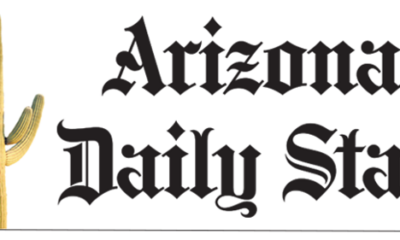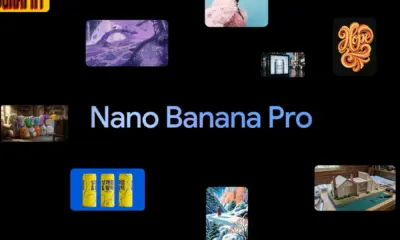Education
Stephanie Dinkins Explores AI’s Impact on Art and Society

Stephanie Dinkins, a professor of art at Stony Brook University, is challenging the relationship between humanity and technology through her latest public projects, “If We Don’t, Who Will?” and “Data Trust.” These initiatives delve into the narratives that shape our interactions with artificial intelligence and the ethical implications of its integration into daily life.
Dinkins’ work emphasizes the importance of storytelling in the context of AI and machine learning. She argues that the stories we tell our machines reflect our values and beliefs. By engaging with these narratives, she aims to foster a deeper understanding of how technology can be designed to serve diverse communities, rather than perpetuate existing biases.
Exploring the Public Projects
The project “If We Don’t, Who Will?” encourages public participation in discussions surrounding AI and its societal implications. Dinkins invites individuals to share their perspectives on what they believe should be preserved and prioritized in the development of AI technologies. This initiative highlights the necessity for diverse voices in the ongoing conversation about technology’s role in society.
In parallel, the “Data Trust” project seeks to address concerns regarding data privacy and ownership. Dinkins collaborates with community members to explore how data is collected, used, and stored. The aim is to empower individuals with knowledge about their own data rights and encourage a more equitable approach to data management.
Dinkins’ work is particularly timely as society grapples with the rapid advancements in AI technologies. According to a report by the World Economic Forum, nearly 50% of jobs could be automated by 2025, raising significant questions about the future of work and the ethical use of technology. Dinkins emphasizes that without proactive engagement, marginalized communities may be disproportionately affected by these changes.
Art as a Medium for Dialogue
Dinkins leverages her artistic background to create immersive experiences that facilitate dialogue about these pressing issues. By combining art and technology, she fosters an environment where participants can reflect on their relationships with machines. This approach not only democratizes the conversation around AI but also highlights the role of art in shaping public understanding.
As part of her work, Dinkins has organized workshops and community events, drawing on her expertise to guide discussions and encourage critical thinking. These initiatives have attracted participants from various backgrounds, creating a rich tapestry of perspectives that inform the ongoing narrative surrounding AI.
In a statement, Dinkins remarked, “We have the power to shape the future of technology through our stories. If we don’t engage in this dialogue, we risk leaving the narrative to those who may not have our best interests at heart.”
Through her projects, Dinkins aims to ensure that the stories we tell our machines reflect a collective vision for a future that prioritizes inclusivity and ethical considerations. As the conversation around AI continues to evolve, her work serves as a critical reminder of the responsibility that comes with technological advancement.
-

 Technology5 months ago
Technology5 months agoDiscover the Top 10 Calorie Counting Apps of 2025
-

 Technology3 weeks ago
Technology3 weeks agoOpenAI to Implement Age Verification for ChatGPT by December 2025
-

 Health3 months ago
Health3 months agoBella Hadid Shares Health Update After Treatment for Lyme Disease
-

 Health4 months ago
Health4 months agoAnalysts Project Stronger Growth for Apple’s iPhone 17 Lineup
-

 Health4 months ago
Health4 months agoErin Bates Shares Recovery Update Following Sepsis Complications
-

 Technology5 months ago
Technology5 months agoDiscover How to Reverse Image Search Using ChatGPT Effortlessly
-

 Technology3 months ago
Technology3 months agoElectric Moto Influencer Surronster Arrested in Tijuana
-

 Technology5 months ago
Technology5 months agoMeta Initiates $60B AI Data Center Expansion, Starting in Ohio
-

 Technology2 months ago
Technology2 months agoDiscover 2025’s Top GPUs for Exceptional 4K Gaming Performance
-

 Technology5 months ago
Technology5 months agoRecovering a Suspended TikTok Account: A Step-by-Step Guide
-

 Health5 months ago
Health5 months agoTested: Rab Firewall Mountain Jacket Survives Harsh Conditions
-

 Lifestyle5 months ago
Lifestyle5 months agoBelton Family Reunites After Daughter Survives Hill Country Floods





















